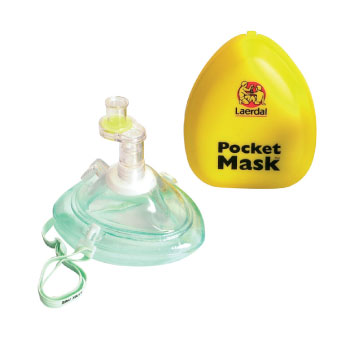What is COVID-19?
COVID-19 is a new strain of Coronavirus first identified in Wuhan City, China in January 2020. The Coronavirus is a large group of viruses common across the world which cause the common cold to Severe Acute Respiratory Syndrome (SARS-CoV).
COVID-19 provides symptoms of a cough, difficulty in breathing and fever, which develop within 14 days of exposure. These infections can cause more severe symptoms with older people, people with weak immune systems or long term conditions.
The transmission of COVID-19 is currently unproven butis thought to be passed from person to person through small droplets from the mouth or nose which are spread when an infected person coughs or sneezes. These small droplets are either breathed in or land on surfaces which people then touch and may transfer to themselves if they touch their eyes, nose or mouth.
At this time there is no treatment for COVID-19. The best way to prevent getting it is to follow good hygiene, avoiding touching your face regularly and washing hands regularly.
Is there a risk to me attending a course?
It is important to put this into perspective, there are 66 million people in the UK and at the time of writing, there were 798 cases in the UK. At the present time, the chances of infection are low but we are monitoring the situation. The safety of our candidates, staff and venue hosts are our key priority and we can assure you that we take steps to minimise the risk of passing on the COVID-19 virus. If at any time we believe there is a high risk in running the course, we will take the decision to postpone. In the meantime, detailed below are the steps we are taking to minimise the risk and ensure businesses can still access the support they need.
What should I consider before attending the course?

You should not attend the training and contact us to discuss options, if:
- you are in isolation
- you have had a cough, difficulty in breathing and fever within 14 days of the course
- you have a cough, difficulty in breathing and fever on the day of the course
- you have been in contact with someone who has been diagnosed with COVID-19 in the last 14 days
- you have visited within the last 14 days an area or country on the government's list of areas to avoid
What should I do during the course?
While attending the course, you should:
- wash your hands with soap and water often, including on arrival, before food, after visiting the washroom, after carrying out CPR session
- where water is not available, utilise hand sanitiser gel
- cover your mouth and nose with a tissue or your sleeve when you cough or sneeze
- bin any dirty tissues immediately
- bin any manikin wipes immediately after use
- keep hold of any personal equipment for the duration of the course and do not mix it up with other candidates e.g. face mask
- do not touch your eyes, nose or face, if your hands are not clean
Should I wear a face mask to the training?
It is not recommended that you wear a facemask for the training. The facemask may discourage you from touching your face as often, but it is not proven to reduce infection, especially where the facemask is not fitted correctly.
What should I do if I am diagnosed with COVID-19 after the course?
If you are diagnosed with COVID-19 after the course and it is suspected that you had COVID-19 on the day of the course, you should get in touch with us immediately. We may then inform our team and those who attended the course, depending on our discussions with you.
What precautions do you take with the training?
All of our trainers as a standard follow strict hygiene guidance with our equipment and all staff are informed to follow standard hygiene guidance.
All Training
If we suspect someone is unwell with the symptoms of the COVID-19 virus, we will ask the individual if they could potentially have the COVID-19 virus. No one should be offended by us asking as a precaution or to us asking them to leave the course if we believe they may be infected.
At the start of the course, the trainer will highlight the precautions we should all take to keep each of us safe from COVID-19 infection.
At the end of each course, we will wipe down equipment before placing it back into storage.
First Aid Training

We will provide candidates with new bandages on each course and either new slings or slings that have been washed with detergent.
Our Annies are fitted with lungs with one-way valves. These one-way valves stop expired air from the lung returning to the candidate, but directs the air out the back, behind the face of the Annie.
As part of our resuscitation training we will:
- provide candidates with their own face mask to use for the duration of the course
- instruct candidates to clean the faces of the Annies after each use
- change the faces at the end of each day. The faces will be sterilised and left to air dry
- change the lungs at the end of each course
- wash the Annies with soapy water at the end of each course
- machine wash any clothing
How else can we access training?
We can offer bespoke Continual Professional Development training over Skype or Google Hangouts, allowing candidates to be safe in their own locations.
Further information
Resuscitation Council - COVID-19 CPR teaching guidance
WHO - COVID-19 advice for the public
References
Source: Gov.uk - COVID-19: guidance for employers accessed 13/03/2020
Source: WHO - Q&A on coronaviruses (COVID-19) accessed 13/03/2020
Source: Gov.uk - Number of coronavirus (COVID-19) cases and risk in the UK accessed 13/03/2020







